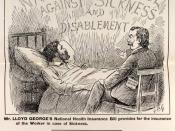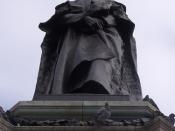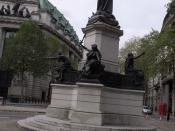The strengh of the British system of government has always been his ability to stifle any danger of revolution through many reforms. During the 19 th century, Britain was the model of liberalism.
Britain was a constitutional monarchy where the power of the king was restricted by the parliament (Lord and commons). As country was becoming bigger (colonies) and stronger (coal and iron production) the system developped in a most democratic way.
Politicly, the country was divided into two big parts, the Liberals and the Conservatives.
During the 19th century, Britain was the most powerful country in Europe. Britain posseded world's largest colonies protected by a strong navy. Britain's colonies covered one sixth of the world surface.
Britain become the most urbanised country, over half of the population lived in the cities.
This urbanisation led to many social problems. The government pass a lot of reforms to answer to social issues.
Still a very powerful country, Britain had gone into a relative decline face to the new German and US economy. Economy was freezing but Britain was still at the time the banking capitol of the world.
In the 1880s, problems of unemployment, urban housing, public health, wages, working conditions, and healthcare upset this traditional balance and led the way for the advent of a new and powerful political movement in Great Britain. Because of all those increasing inequalities the Labour Party was formed by workers themself. By 1900, wages were stagnating while prices continued to rise throughout the country. Workers responded to their problems and to their terrible condition of life by putting their faith not in the Liberal Party, the group that traditionally received the worker vote since industrialization, but in the oft-militant trade unions, organizations that advanced worker demands in Parliament, cared for disabled workers, and assisted...


